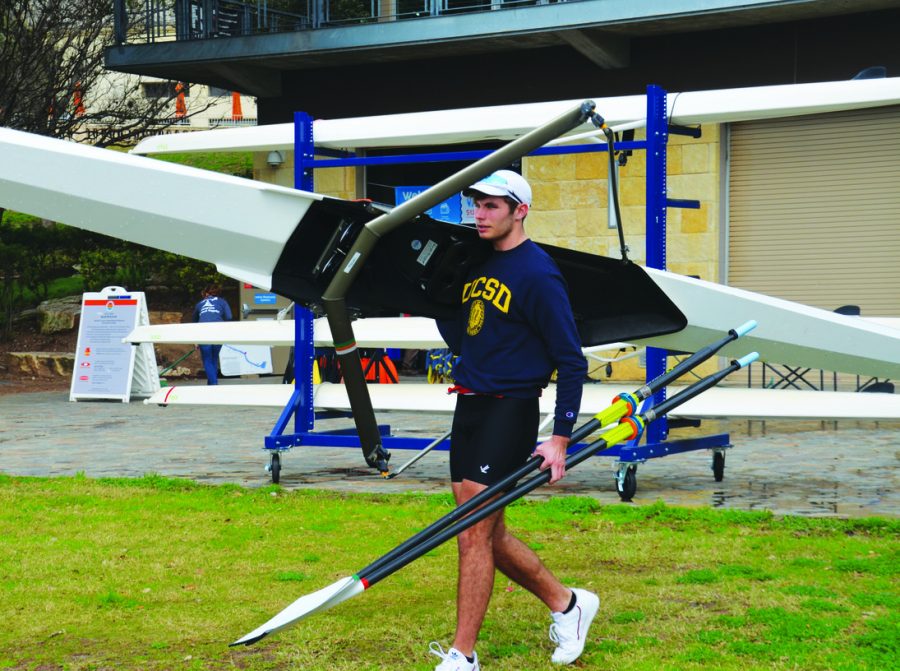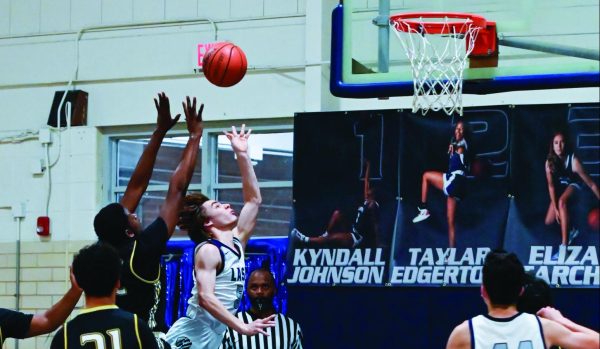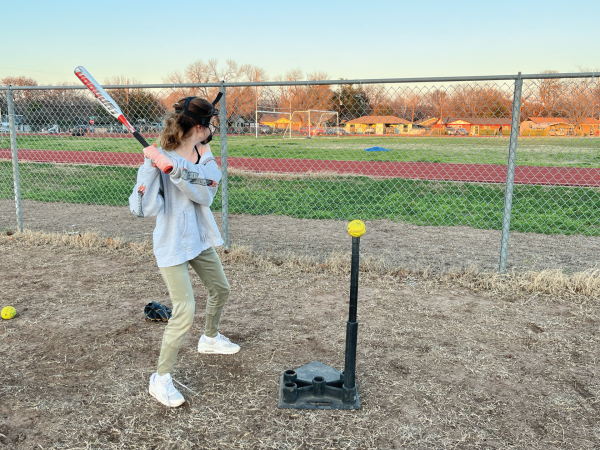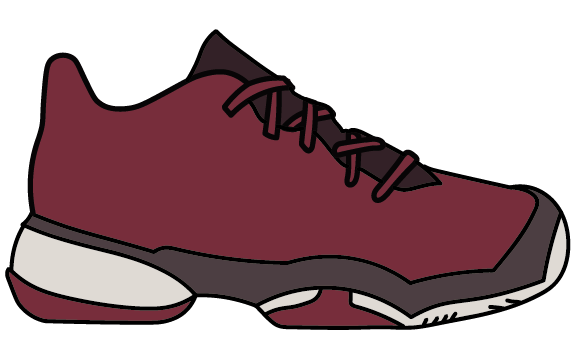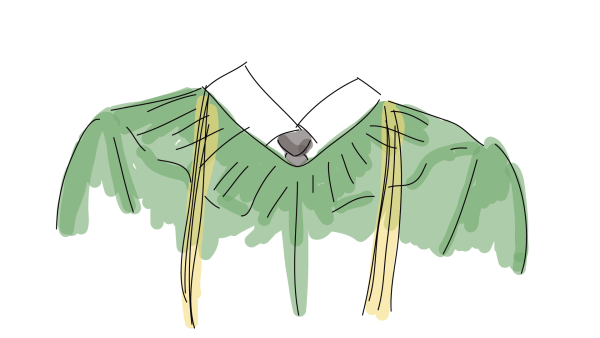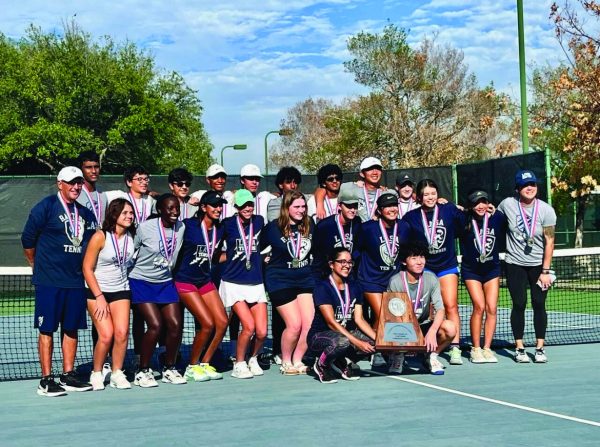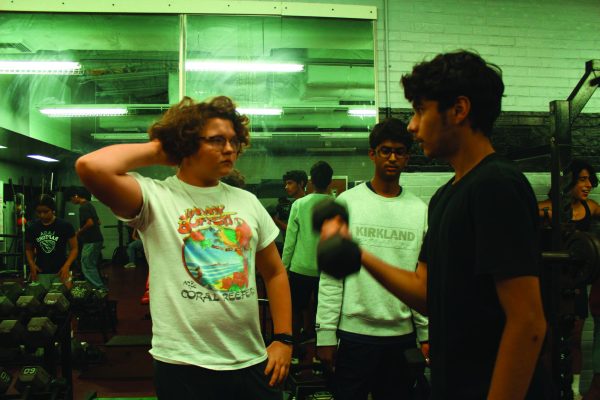Senior rows to San Diego
April 11, 2019
Senior Thomas Wilson plans to take his passion for rowing with him beyond high school. He began receiving attention early on as a club rower for his exceptionally fast times on the rowing machine, and his desire to compete in college has had a great impact on his college application process. Wilson began rowing as a way to be social and have fun in a competitive environment.
“Coming into high school, I was a very nervous person with little self-confidence,” Wilson said. “Rowing started as a thing that I would do, and on the recreational squad we met like two or three times a week, and it was just something you go out for fun. And so really I unwittingly signed up for not only more my involvement with people but also more physical exertion and doing things that were hard. I kind of threw myself into the fire without really knowing that I was doing, and after a while I started wanting to push myself and go faster because if you embrace things that scare you you can’t really be scared of that much.”
Wilson rows with Austin Rowing Club (ARC), which is a club team comprised of rowers from across the city. According to Wilson, inter-team relationships are the key to a good rowing team.
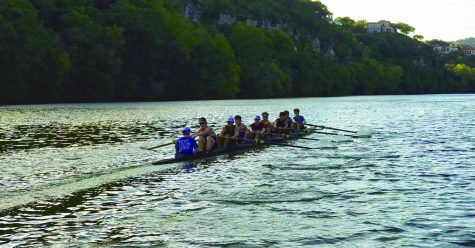
“People call rowing the ultimate team sport for a reason — it’s all about the team,” Wilson said. “Generally if you’re an individual in a rowing boat, that’s a bad thing because if you’re breaking from the norm. The best thing to do as an individual I think doesn’t come in the boat but how you treat your teammates outside and what you bring when it comes to a motivating kind of mindset. Basically the best thing to do individually is to support your team and be a good teammate.”
Wilson was approached by his coach about rowing in college. Wilson said that the recruiting process, especially in lower-profile sports like rowing, is very student driven. Not only did he have to race well, he also had to contact college coaches himself in order to make himself a viable candidate for their programs. After contacting many colleges, Wilson narrowed down his choices until finally deciding on the University of California at San Diego (UCSD).
¨Head coach pulled me aside one day and said I could actually row in college and be a D1 athlete,” Wilson said. “So I started reaching out to coaches and I found this kind of nice intersection between what I want to study, which marine biology, and rowing, and I found the intersection between those two things at UC San Diego, which has a really good team.”
College counselor Jamie Kocian has helped LASA seniors and athletes with this application process by working with organizations such as the National Collegiate Athletic Association (NCAA) and the National Association of Intercollegiate Athletics (NAIA).
“Students recruited to play sports at the collegiate level have another element to contend with in the admissions process: talking to and fielding interest from coaches as well as registering and maintaining eligibility with the NCAA or NAIA eligibility centers,” Kocian said.
According to Kocian, new NCAA policy permits students to begin talking to coaches at the beginning of their junior years. This change allows athletes to get the process started earlier and get in touch with schools and coaches earlier.
“The NCAA rolled out a major rule change this year, which allows coaches to talk to student-athletes at the beginning of junior year rather than at the end, depending on the sport,” Kocian said. “While this change can be exciting for students and families, it certainly does ramp up the stress involved with the college search and admissions process.”
Wilson had many people to guide him on his process, from fellow rowers who had already underwent the college application process to coaches at his rowing club. They helped him send in his ergometer times and interact with coaches to better his chances of receiving college’s attention.
“I talked to rowers I talked to coaches that helped me to make my decisions,” Wilson said. “I had enough people who had either been recruited or had recruited people to kind of guide me and say ‘Here’s what you do here’s what you don’t do, don’t nag them, they know you exist, and don’t send them an email update after every workout you do well on– just let them know race results.’”
One of Wilson’s main helpers was his coach at ARC, Eli Brown. Brown has been coaching Wilson for the past year and a half, and has had the opportunity to watch him grow as an athlete and recognize his talent.
“Thomas is a likeable guy,” Brown said. “He has a good attitude, and a fierce mindset when it counts. His leadership on our team is hard to replace due to his ability to lead by example and consistently shows up as the top guy. His speed on the indoor rower (ergometer), grades, and academic achievements, and most importantly his character and interaction with others help guide and influence the college coaches into making decisions to view him as a valuable asset to their team. He still has a lot of speed to gain and being surrounded by other guys faster and at comparable speeds will help him grow even more as an athlete and as a person.”

